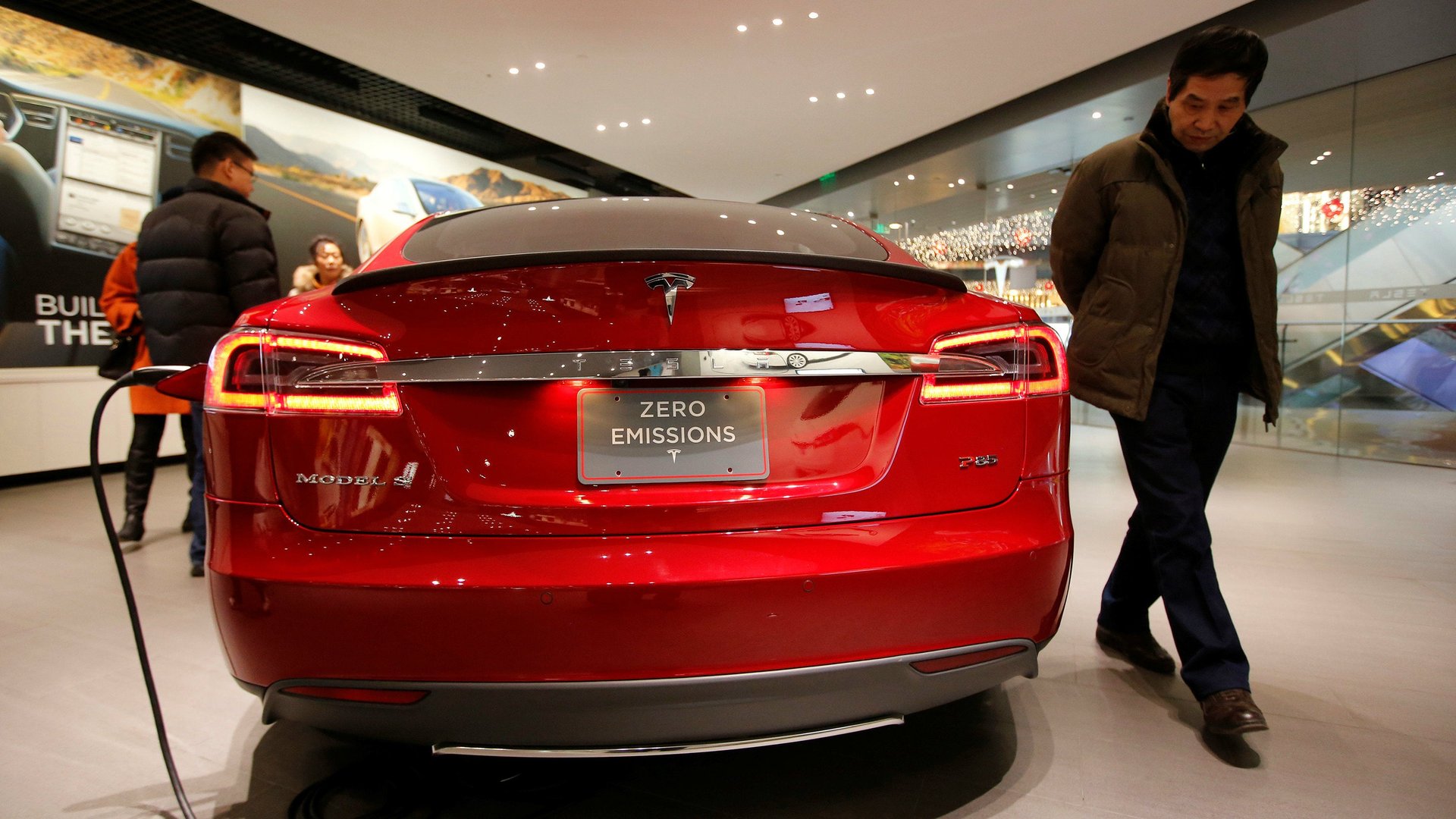Tesla might soon have “made-in-China” cars, but they’ll still get taxed there like imports
Tesla’s expected China coup would see it finally build cars in its own factory in Shanghai. But they’ll still likely be treated as foreign imports by the country.


Tesla’s expected China coup would see it finally build cars in its own factory in Shanghai. But they’ll still likely be treated as foreign imports by the country.
On Sunday (Oct. 22) The Wall Street Journal reported (paywall) that the electric car maker has secured a deal to manufacture vehicles in Shanghai’s free-trade zone, independently and without a local partner. Tesla did not confirm the news to Quartz or other media, instead re-stating that it hopes to “clearly define” its production plans for China by the end of 2017.
The factory, if it indeed gets built, will be the first of its kind for a foreign automaker in China for being a solo operation. But it’s not a complete win for Tesla, which faces stiff competition in the country as the government attempts to boost its domestic electric vehicle industry. China, which has heavily subsidized purchases of electric cars, last year accounted for 45% of all EV sales.
Typically, foreign car makers who hope to sell to China have two options, both of which come with drawbacks. Companies hoping to make cars inside China must form a joint-venture with a domestic car maker, typically a state-owned enterprise, that grants the local partner a 51% majority stake and a corresponding share of profits. Manufacturing domestically in theory lets a foreign company enjoy lower labor and logistics costs, but also raises concern over intellectual property since it must partner with a local manufacturer who happens to be producing vehicles of its own.
Still, many foreign automakers pursue this route—GM has a joint venture with Shanghai’s SAIC Motor Corp, and Ford has one with Chongqing-based Changan automotive.
The alternative is to import cars to China. But the government imposes a steep 25% tax on all imported vehicles—making them prohibitively expensive for some cost-sensitive consumers. Tesla’s expected China factory, despite its location on the mainland, is unlikely be exempt from the import tariff because goods coming into the domestic market from a free-trade zone are treated as imports (that’s pretty standard for such zones).
Professor Liu Enzhuan, head of the Free Trade Zone Research Institute at Tianjin University of Finance and Economics, told Chinese business media publication Caixin (link in Chinese) that one factor that could affect Tesla’s future tariff situation is whether the assembled parts of the vehicles are locally sourced. According to audit consultancy Deloitte, import charges can be determined according to the value of the finished good, or the materials and components.
A Tesla car’s sticker price is already about 50% more expensive in China than in the US. Nevertheless, its fortunes in the country to date have been promising. Sales to the country more than tripled between 2016 and 2017, hitting $1.1 billion—one-seventh of its overall revenue. It occupies about 8.6% of China’s EV market, according to Bloomberg—local rivals make up the remainder. It’s achieved this by targeting China’s ultra-rich in major cities like Beijing and Shanghai. Chinese social media giant Tencent invested $1.8 billion in a stake in Tesla earlier this year—leading some analysts to speculate that a deeper partnership may be in the works.
As long as it continues this marketing strategy, the continued tariff might not slow sales that much. Much like how Apple maintained years of strong sales in China despite its steep price tag, Tesla could position itself as a luxury vehicle. But if it aspires to reach the mass-market in China, the tariff could remain an obstacle.